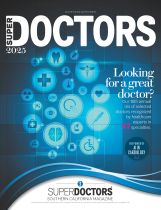American Academy of Pediatrics (AAP)
September 12. 2016
More than 80 percent of 2,110 parents made at least one dosing error when dispensing liquid medication during an experiment that sought to identify best practices for the design of medication labels and dosing tools, according to a new study funded by the National Institutes of Health. The study, "Liquid Medication Errors and Dosing Tools: A Randomized Controlled Experiment," published in the October 2016 Pediatrics, found that 68 percent of the errors made involved overdosing, and that use of a dosing cup was associated with a four times increased odds of a dosing error compared to when an oral syringe was used. The study, published online Sept. 12, found that 85 percent of parents made at least one dosing error in nine trials; 21 percent made at least one large error, measuring out more than two times the recommended dose. Unlike most prescription drugs taken by adults, pediatric medications commonly involve the use of liquid formulations. The need to accurately measure out liquid medicines, and the use of a wide range of measurement units, such as milliliter, teaspoon or tablespoon, contribute to parent confusion and errors, research shows. The American Academy of Pediatrics (AAP) and the U.S. Food and Drug Administration recommend that parents use dosing tools with standard markings, such as oral syringes, droppers and dosing cups, rather than kitchen spoons, which vary widely in size and shape. The study's findings support the use of oral syringes over dosing cups, especially when small dose amounts are to be given to children. The research is part of the SAFE Rx for Kids study, and findings will be used to develop optimized medication labels and dosing tools to promote the safe use of children's liquid medicines.

